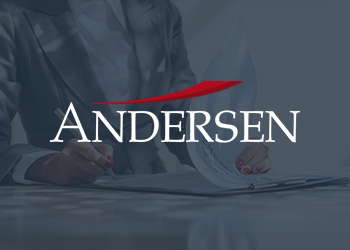In the July 2023 edition of Andersen in Australia’s Monthly Tax Update, we provide the recent updates in legislation along with tax developments in the areas of corporate tax, individual tax, indirect tax and international tax. We also include the ATO’s recent activities, including its publications, rulings issued in the past month, latest Australian tax cases and other news in this edition.
Inside you will find
Legislation Update
Treasury Laws Amendment (2023 Measures No 2) Bill 2023
The Bill to increase the Medicare levy and Medicare levy surcharge (MLS) income thresholds has received assent on 23 June 2023 as Act No 28 of 2023.
The Treasury Laws Amendment (2023 Measures No 2) Bill 2023:
- amends the Medicare levy and Medicare levy surcharge income thresholds to apply to the 2022-23 income year;
- allows eligible primary producers to treat certain carbon abatement income as primary production income; and
- reduces the GDP adjustment factor to work out certain pay as you go (PAYG) and GST instalments for small businesses and eligible individuals.
Treasury Laws Amendment (2022 Measures No 4) Bill 2022
The Treasury Laws Amendment (2022 Measures No 4) Bill 2022 has received assent on 23 June 2023 as Act No 29 of 2023.
The Act gives effect to a range of tax measures including:
- the digital games tax offset to apply to qualifying Australian development expenditure incurred in relation to eligible game development from 1 July 2022;
- amendments to clarify that digital currencies continue to be excluded from the income tax treatment of foreign currency and in the context of the GST;
- measures to reduce the compliance burden for employers finalising their fringe benefits tax;
- the skills and training boost for small businesses;
- the technology investment boost for small businesses;
- amendments to extend and adapt certain financial reporting and auditing requirements for registrable superannuation entities, and
- amendments to various taxation laws to confirm the tax treatment of certain defined benefit pensions and provide a non-refundable tax offset for recipients of certain military invalidity benefits.
Customs Tariff Amendment (Incorporation of Proposals) Bill 2023
The Customs Tariff Amendment (Incorporation of Proposals) Bill 2023 received assent as Act No 34 of 2023 and includes provisions to make the following amendments:
- provide for duty free importation for certain new electric cars with a customs value less than the luxury car tax threshold imported on or after 1 July 2022
- permanently extend the “free” rate of customs duty for certain prescribed medical products and hygiene products
- temporarily increase customs duties for goods from Russia and Belarus, and
- temporarily provide a free rate of customs duty for certain goods from Ukraine.
- correct tariff references for blood-grouping reagents and ‘herbicides, anti-sprouting products and plant-growth
Taxation Administration (Reporting by Electronic Distribution Platform Operators) Legislative Instrument 2023 (F2023L00850)
Electronic distribution platform (EDP) operators that will commence third party reporting of certain taxable payments from 1 July 2023 will be required to do so on a 6-monthly basis.
These operators are required to report certain transactions to the ATO from 1 July 2023 for transactions relating to the supply of taxi travel and short-term accommodation, and 1 July 2024 for all other transactions.
A legislative instrument has been made to replace the default annual reporting period for third party reporting by EDP operators with 6-monthly reporting periods. These reporting periods will be from 1 January to 30 June, and 1 July to 31 December, in each calendar year. Taxation Administration (Reporting by Electronic Distribution Platform Operators) Legislative Instrument 2023 is made under s 396-55(a)(ii) in Sch 1 to TAA 1953. Item 15 of the table in s 396-55 requires an EDP operator to prepare a report about specified transactions made through that EDP.
EDP operators who are required to prepare a report in relation to a period must give that report to the Commissioner by the 31st day after the end of that reporting period. This instrument does not change the date by which a report must be given to the Commissioner. It also does not affect any other reporting requirements that reporting entities may have under s 396-55.
The instrument commenced on 24 June 2023. It has effect from different dates, depending on the type of transaction involved. It applies to transactions entered into on or after:
(a) 1 July 2023, for transactions that relate to a supply of taxi travel (within the meaning of the GST Act)
(b) 1 July 2023, for transactions that relate to a supply of short-term accommodation, and
(c) 1 July 2024, for all other transactions to be reported under item 15 of the table in s 396-55.
Income Tax Assessment (Digital Games Tax Offset) Rules 2023 (F2023L00992)
Rules have been made on how companies apply for Digital Games Tax Offset (DGTO) certificates and the establishment of the Digital Games Tax Offset Advisory Board (the Board).
The Income Tax Assessment (Digital Games Tax Offset) Rules 2023 (F2023L00992) set out the procedural rules for how companies apply for a Completion Certificate, Porting Certificate or Ongoing Development Certificate for the DGTO, or provisional forms of those certificates. It also specifies the rules for the processing and assessment of such applications (including seeking expert advice and additional information from applicants). Issuing of the relevant DGTO certificates by the Arts Minister is one of the requirements for eligibility to claim the DGTO.
The rules also provide for reports to be sought from independent experts and third parties in relation to applications for DGTO certificates, as a way of verifying information contained in applications. The rules require sufficient information to be provided to the Arts Minister to enable the Minister to decide whether to issue a certificate under the DGTO.
Further, the rules set out the procedures by which the Board will consider applications for provisional certificates for the DGTO. Provisional certificates are non-binding and provide guidance to applicants as to whether their game or games are likely to qualify for final DGTO certification.
Crimes Legislation Amendment (Combatting Foreign Bribery) Bill 2023
The Crimes Legislation Amendment (Combatting Foreign Bribery) Bill 2023 has been introduced into Parliament and seeks to strengthen Australia’s legal framework to investigate and prosecute foreign bribery.
The Bill contains measures to amend Div 70 of the Criminal Code which contains the offence of bribing a foreign public official and makes consequential amendments to the tax provisions for consistency. It also introduces a new offence of failure of a body corporate to prevent foreign bribery by an associate. The change to the Criminal Code is aimed at facilitating investigation and prosecution of foreign bribery.
The Bill also amends s 26-52 of ITAA 1997 to accord with the terms of the new offence. That section prohibits a person from claiming a deduction for a loss or outgoing the person incurs that is a bribe to a foreign public official.
The amendments to ITAA 1997 would apply to a loss or outgoing incurred on or after the commencement of the amendments to the Criminal Code.
The measures were previously contained in the Crimes Legislation Amendment (Combatting Corporate Crime) Bill 2019 which had lapsed at the end of Parliament on 25 July 2022.
OECD updates
OECD update on automatic exchange of information in tax matters
Countries of the Organisation of Economic Cooperation and Development (OECD) have agreed to swiftly implement the newly revised International Standards for Automatic Exchange of Information in Tax Matters which encompass several important updates and additions to address emerging challenges in the evolving tax environment. This includes:
- the Crypto-Asset Reporting Framework which provides for the automatic exchange of tax relevant information on crypto-assets, and
- amendments to the Common Reporting Standard to bring certain electronic money products, central bank digital currencies and indirect investments in crypto-assets into scope.
For more information, please refer here.
Other updates
Country of tax residency disclosures for Government contracts
Information has been released on the measure requiring tenderers for Government contracts worth more than $200,000 to disclose their country of tax residency.
From 1 July 2023, tenderers for Government contracts worth more than $200,000 are required to disclose their country of tax residency (including their ultimate parent entity’s country of tax residence), as part of the general business identifier information required in the Commonwealth Government procurement tender application process. This October 2022–23 Budget measure is being implemented as part of the government’s Buy Australia Plan.
The important points are noted below:
- The new disclosure requirement applies to all businesses (not just Australian businesses) tendering for a Commonwealth Government procurement contract.
- If an entity has multiple tax residencies, each of these countries of which it is a tax resident will need to be disclosed. Tie-breaker rules are not relevant for these disclosure purposes.
- Non-corporate Commonwealth entities are required to include the disclosure requirement in all approach to market documentation for procurements valued greater than $200,000 (GST inclusive). Corporate Commonwealth entities are encouraged to use best endeavours to incorporate the requirements into their approach to market documentation and drive consistency in Commonwealth procurement processes. The Treasury website provides an example of the model content that can be included in entity templates.
For more information, please refer to the Treasury website here.
ATO Rulings and Activity
Draft update to guidance on central management and control test of residency
The ATO has issued a draft update to Practical Compliance Guideline PCG 2018/9 on identifying where a company’s central management and control is located.
This draft update provides proposed amendments to PCG 2018/9 to add the draft risk assessment framework to assist foreign-incorporated companies in managing their compliance risks for the central management and control test of residency and provide certainty regarding the ATO’s compliance approach.
The last day for comments on this draft guideline is 28 July 2023.
Aggregated turnover and connected entities
The ATO is seeking feedback on Draft Taxation Determination TD 2023/D2 Income tax: aggregated turnover and connected entities – Commissioner’s discretion that an entity does not ‘control’ another entity.
The draft guidance addresses specific issues that arise when the ATO consider whether to exercise the Commissioner’s discretion to determine that one entity (the first entity) does not ‘control’ another entity (the test entity).
The question of ‘control’ is central to determining who is connected with you. These connected or affiliated entities may be based in Australia or overseas. Your aggregated turnover is your annual turnover, plus the annual turnovers of any business entities that are your affiliates or connected with you.
According to the ATO, there are a number of tax concession where the eligibility is based on your aggregated turnover being below certain aggregated turnover thresholds.
The Commissioner has the discretion to determine that the first entity does not control the test entity if the control percentage is at least 40%, but less than 50%.
Thedraft Determinationprovides guidance on the following specific issues that have emerged from the Commissioner’s administration of the discretion in s 328-125(6) of ITAA 1997 to determine that an entity does not “control” the test entity:
- whether the discretion should be exercised where a third entity has sole or primary responsibility for day-to-day management of the affairs of the test entity, but holds relatively insignificant or no interests in the income or capital of the test entity, or in shares carrying voting rights;
- whether control percentage interests of between 40% and 50% should be disregarded because the remaining holders of interests in the test entity will together necessarily control the entity, irrespective of their number or relationship to each other.
The last day for comments on draft TD 2023/D2 is 28 July 2023.
Draft guidance on how non-arm’s length income rules interact with CGT provisions
The ATO has issued Draft Taxation Determination TD 2023/D1 for consultation, on how the non-arm’s length income and capital gains tax provisions interact to determine the amount of statutory income that is non-arm’s length income.
TD 2023/D1 outlines the ATO’s views as to how the non-arm’s length income (NALI) provisions in Subdiv 295-H of ITAA 1997 and the capital gains tax (CGT) provisions in Pt 3-1 (in particular, s 102-5) of that Act interact in determining the amount of statutory income that is NALI where a capital gain arises as a result of non-arm’s length dealings.
In particular, the draft determination provides guidance as to how to calculate the amount of statutory income that is NALI where a superannuation fund makes a capital gain as a result of non-arm’s length dealings. The draft determination provides a number of practical examples to demonstrate these calculations.
The draft determination also outlines various alternative views on how the NALI and CGT provisions interact and why these alternative views are not supported.
When the final determination is issued, it is proposed to apply to years of income commencing both before and after its date of issue.
The last day for comments on draft TD 2023/D1 is 28 July 2023.
ATO taxpayer alert over diversion of property development profits through SMSF arrangements
The ATO has issued a taxpayer alert, TA 2023/2, which outlines its concerns regarding arrangements where profits of a property development enterprise are diverted to a related self-managed super funds (SMSF) through the use of a special purpose vehicle (SPV) owned by the fund.
TA 2023/2 refers to the non-arm’s length arrangements between the SPV and other entities; the enterprise derives a profit that ultimately benefits the SMSFs which is more than what it would have been if all the parties had dealt with each other at arm’s length.
The ATO believes that taxpayers and advisers may be under the misapprehension that, because the SMSF itself is not directly involved in the non-arm’s length dealings, the arrangement is effective in obtaining concessional tax treatment.
However, the alert clarifies that any non-arm’s length transaction between entities within the same closely held group can give rise to non-arm’s length income for an SMSF in that same group.
The ATO is currently reviewing these arrangements and are engaging with taxpayers who have entered into, or are considering entering into, these and similar arrangements.
The alert also outlines what you should do if you have entered or are considering entering such arrangements.
Income from the use of an individual’s fame
The ATO has finalised guidance confirming that income from the use of an individual’s fame cannot be alienated to a related entity, such as a family trust or company.
In Taxation Determination TD 2023/4 Income tax: use of an individual’s fame by related entities, the ATO’s view is that such income will be ordinary income of the individual, assessable under s 6-5 of ITAA 1997. This is on the basis that under Australian law, an individual with fame has no property in that fame and cannot vest or transfer any property in their fame to another entity. There is no recognised proprietary right in the fame that is capable of transfer of assignment. Accordingly, under an arrangement where the related entity is allowed to use the famous person’s name, image, likeness, identity, reputation and signature (their “fame”), and the related entity receives fees from third parties for their authorised use of the fame, the fee will be taken to be derived by the individual, and not the related entity.
The determination distinguishes the above arrangement with those where the related entity engages the individual to provide services to a third party. The payment for such services can be assessable to the related entity, rather than the individual, subject to the personal services income rules or the general Pt IVA anti-avoidance rules.
The above position is a departure from previous guidance relating to professional sportspersons that has since been withdrawn (PCG 2017/D11 and ATO ID 2004/511). The draft PCG had proposed a “safe harbour approach” where a portion (up to 10%) of such income could be alienated to the related entity. This guidance was withdrawn after a 2018/19 Federal Budget measure proposed that famous individuals can no longer license their fame or image to another entity, from 1 July 2019.
If individuals have already entered into an arrangement in good faith on the basis of PCG 2017/D11, the ATO will not devote compliance resources to apply the position in TD 2023/4 for the income years of 2018–19 to 2022–23. It will however apply TD 2023/4 to income derived in 2023–24 and later income years. Otherwise, the determination will apply to income years commencing both before and after 5 October 2022.
TD 2023/4 was previously released in draft form as TD 2022/D3.
For more information, please refer here.
Reasonable travel and meal allowances for 2023–24
The Commissioner has set out in TD 2023/3 the amounts considered to be reasonable in relation to claims made by employees for the 2023–24 income year for:
- overtime meal expenses – for food and drink when working overtime
- domestic travel expenses – for accommodation, food and drink, and incidentals when travelling away from home overnight for work (particular reasonable amounts are given for employee truck drivers, office holders covered by the Remuneration Tribunal and Federal Members of Parliament), and
- overseas travel expenses – for food and drink, and incidentals when travelling overseas for work.
The ATO subsequently issued an erratum to TD 2023/3 (Income tax: what are the reasonable travel and overtime meal allowance expense amounts for the 2023–24 income year?). It corrects a paragraph reference in the determination.
In addition, the ATO has withdrawn TD 2017/19 (Income tax: what are the reasonable travel and overtime meal allowance expense amounts for the 2017–18 income year?). It was withdrawn with effect from 13 July 2023, as its date of effect has ceased.
Updated GST Ruling on supplies outside of Australia
The ATO has updated GST ruling GSTR 2004/7 which deals with when a supply is made to a non-resident, or an entity that is not an Australian resident or other recipient of a supply who is not in Australia or is outside Australia when the thing supplied is done.
The Addendum reflects updated ATO guidance on individual residency in Taxation Ruling TR 2023/1 and to make minor style changes.
GST and digital currency
The ATO has released a series of guides for businesses on the GST treatment of digital currency transactions.
Generally, digital currency is a type of crypto asset that uses cryptography and distributed ledger technology to secure and record transactions.
According to the ATO, for GST purposes, a digital currency is a digital unit of value that:
- is fully interchangeable with the same digital currency;
- can be provided as payment;
- is available to the public free of any substantial restrictions;
- is either
- not denominated in any country’s currency; or
- denominated in a currency that is not issued by, or under the authority of, an Australian or foreign government.
- does not have a value that is derived from or is dependent on anything else;
- does not give an entitlement to receive something else unless it is incidental to holding it or using it as payment; and
- if supplied, would not be an input-taxed financial supply for a reason other than being a supply of a digital currency or money.
Other crypto assets such as non-fungible tokens (NFTs), stablecoins, and an initial coin offering, are not considered digital currency by the ATO though its treatment for GST purposes will depend on its characteristics.
The ATO’s series of guides also covers topics on:
- GST and digital currency as payment
- GST and digital currency exchanges
- GST and trading digital currency
For more information, please refer here.
Lodgment obligations, due dates and deferrals
The ATO has updated Practice Statement PS LA 2011/15 dealing with lodgment obligations, due dates and referrals as a result of a new lodgment channel available for tax agents to make deferral requests via Online Services for Agents and as a result of the new sharing economy reporting obligation that commences on 1 July 2023.
For further information, please refer here.
ATO Practice Statement: How to treat a request to lodge a late objection
The ATO has updated Practice Statement PS LA 2003/7 which provides guidance on requests to treat out of time objections as if they were lodged within time.
As part of the update, miscellaneous amendments have been made to provide clarification.
For more details, please refer here.
Class rulings issued:
- Class Ruling CR 2023/31 LogbookMe Pty Ltd — LogbookMe In Car Logbook Solution for measuring the kilometres travelled in a vehicle for fuel tax credit purposes. This ruling applies to taxable fuel acquired on or after 1 July 2022 to 30 June 2024.
- Class Ruling CR 2023/32 EROAD Australia Pty Ltd — Fuel Tax Credits Solution. This ruling applies to taxable fuel acquired on or after 1 January 2023 to 30 June 2024, and
- Class Ruling CR 2023/33 Commonwealth Bank of Australia – CommBank PERLS XVI Capital Notes. This Ruling applies from 1 July 2022 to 30 June 2033.
- Class Ruling CR 2023/34 The Illawarra Community Housing Trust Ltd – deductibility of donations under a payment directiondeed. This Ruling applies from 1 July 2022.
- Class Ruling CR 2023/35 Tasmanian Irrigation Pty Ltd — water entitlements roll-over. This ruling applies from 1 July 2022 to 30 June 2024.
- Class Ruling CR 2023/36 YWCA Canberra — deductibility of donations under a payment direction deed. This ruling applies from 1 July 2023 to 30 June 2028.
- Addendum to Class Ruling CR 2013/66 Fringe benefits tax: employers who use the Navman Wireless Australia telematics system for car log book records and for odometer records. This addendum applies from 30 May 2023.
Other rulings issued:
- Product Ruling PR 2023/8 Elders Rural Services Australia Ltd — Rural Products Prepayment Program. This ruling applies from 1 July 2023.
- Product Ruling PR 2023/10 Tax consequences for a borrower being charged an “Indexed Rate” of interest under a home loan. It applies from 1 July 2023 to borrowers specified in the ruling who enter into the scheme from 1 July 2023 until 30 June 2026.
- Product Ruling PR 2023/11 Mortgage House Blended Plus Loan Facility. It applies to the class of entities specified in the ruling that enter into the scheme from 1 July 2023 until 30 June 2026.
- Addendum to PR 2022/2 Tax consequences of investing in C2 Gateway Deferred Purchase Agreement. It applies before and after its date of issue.
Latest Australian Tax Cases
- Tax deductions – The AAT has held that a payment of $1,500,000 for the purchase of a 75% interest in a joint venture through a farm-in agreement was on capital account and not deductible to the taxpayer under either the general deduction provision or Div 40 provisions of ITAA 1997. [Richmond v FC of T 2023 ATC; [2023] AATA 1915, 27 June 2023.]
- Cash flow boost – The AAT has held that 6 related entities were not entitled to cash flow boosts pursuant to the Boosting Cash Flow for Employers (Coronavirus Economic Response Package) Act 2020 as they had not paid amounts that were subject to a withholding obligation under Subdiv 12-B of sch 1 to the Taxation Administration Act 1953. [Sexyworld (Aust) Pty Ltd v FC of T 2023 ATC; [2023] AATA 1919, 15 June 2023.]
- Division 7A – The Federal Court has allowed the taxpayers’ appeals against amended assessments where the Commissioner conceded that the assessments were excessive. [Ierna Beneficiary Pty Ltd & Anor v FC of T [2023] FCA 725, 30 June 2023.]
- FBT, Otherwise deductible rule – The Federal Court has held that the taxable value of travel expenses incurred by a taxpayer in relation to its “Fly In Fly Out” (FIFO) employees for travel before and after the employees began and finished duties should not be reduced to nil, as the relevant travel did not occur in the course of employment and thus did not satisfy the “otherwise deductible” test in the Fringe Benefits Tax Assessment Act 1986 (Cth). [Bechtel Australia Pty Ltd v FC of T 2023 ATC; [2023] FCA 676, 22 June 2023.
If you would like more information or would like to discuss this tax update, please contact:
Cameron Allen
Office Managing Director
Tel: +61 (0) 3 9939 4488
Tel: +61 (0) 2 8226 8756
Email: cameron.allen@au.Andersen.com
MELBOURNE | SYDNEY





